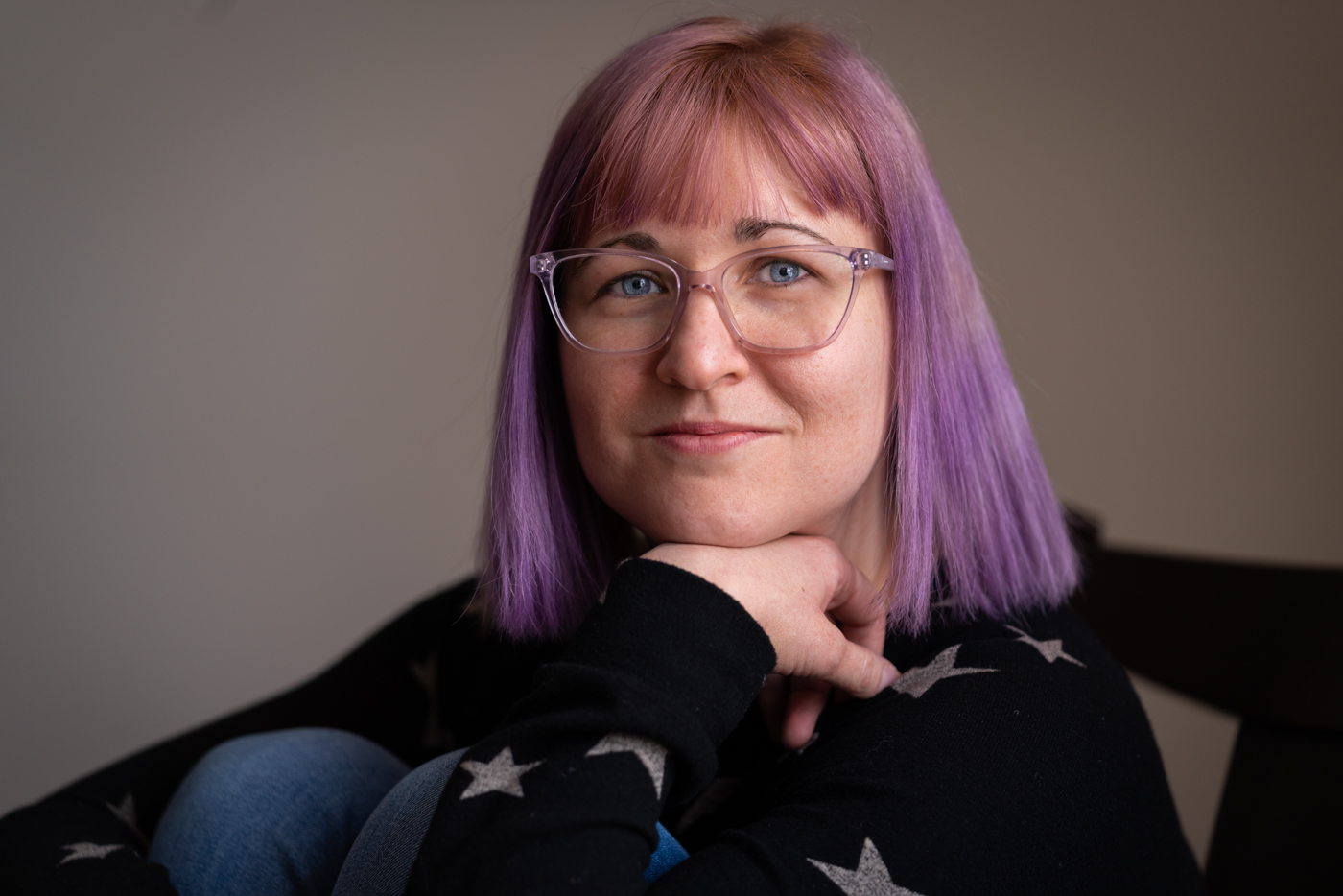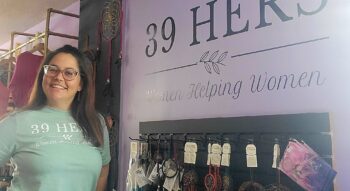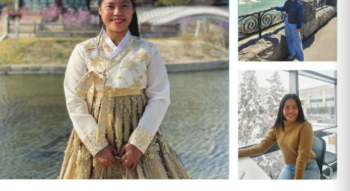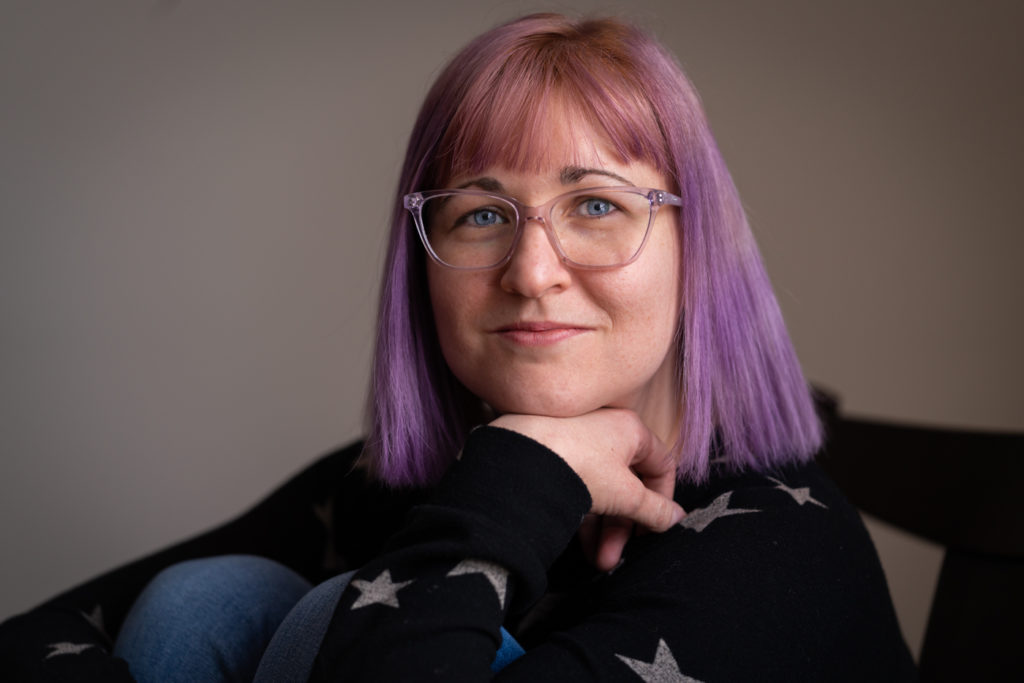
Warning:This story includes references to self-harm and suicide.
Randi-Lee Bowslaugh is a busy woman.
The Niagara College alumna is a writer, an author of ten books with a few more in the hopper. She’s a writing coach, podcaster, and mom to two teens.
She’s also a personal trainer and kickboxer, having jabbed and uppercut her way to a silver medal in the Canadian Amateur Sport Kickboxing Pan-American Championships in 2016, and representing Canada at the world championships a year earlier.
And she’s a mental health, autism and anti-bullying advocate, dedicating much of her work to those issues.
All in, there doesn’t seem to be much that Bowslaugh, who graduated in 2010 from the Community and Justice Services program, can’t do.
But there was a time in her life when she thought she didn’t have it in her to succeed at her dreams — or even live to see another day.
“I felt like the worst person,” Bowslaugh said. “I contemplated taking my own life. I had it all planned. I was going to get in my car and drive off the Dain City Bridge and it would all be over.”
What Bowslaugh wanted to end were her own feelings of loneliness and depression; of feeling like no one understood her struggles, starting when she was a teenager in high school.
To help sort through and validate her feelings, Bowslaugh would write poetry. She would compile that work into a self-published anthology, Thoughts of a Wanderer, in 2017, as documentation of her journey from dark to light.
And though that light would be clear and bright, it would be a long and winding path to find it.
Life at NC
She caught glimmers of it, however, when she first enrolled at Niagara College in 2008 at the behest of her then-boyfriend, now-husband Andrew who was already attending NC.
Bowslaugh took courses, including psychology, to prepare her for the Community and Justice Services program. They were “good for understanding college life,” Bowslaugh recalled, and for helping her to discover she loved learning how the mind works.
She also threw a couple of wild-card classes into her schedule to take advantage of the College’s daycare option for full-time students who were parents. Construction math was one of those courses. Bowslaugh was one of two women in the class.
Still, she loved being at Niagara.
“I learned a lot about life and growing up,” Bowslaugh said. “The teachers I had were very good. I love psychology so I took extra classes. I find it very interesting the way the brain works and why people think the way they do, the way my brain works, why it does what it does.”
The draw to Community and Justice Services was an earnest one. Bowlsaugh’s own brother, Brandon, had challenges with addiction. He died of an overdose in 2021.
But when she was in college, she just wanted to help people like him.
It was hard finding a job in addiction services after graduating. They aren’t well-funded, she explained, and those in such positions tend not to move around a lot.
To bide her time, she started taking university-level psychology courses with an eye to becoming a probation officer.
In the meantime, she held jobs at the Niagara Regional Native Friendship Centre and, later, Port Cares, where she worked as an employment counsellor. Many of the people she helped were living with depression and anxiety. It was at a time when Bowslaugh’s own challenges with both were coming to a head.
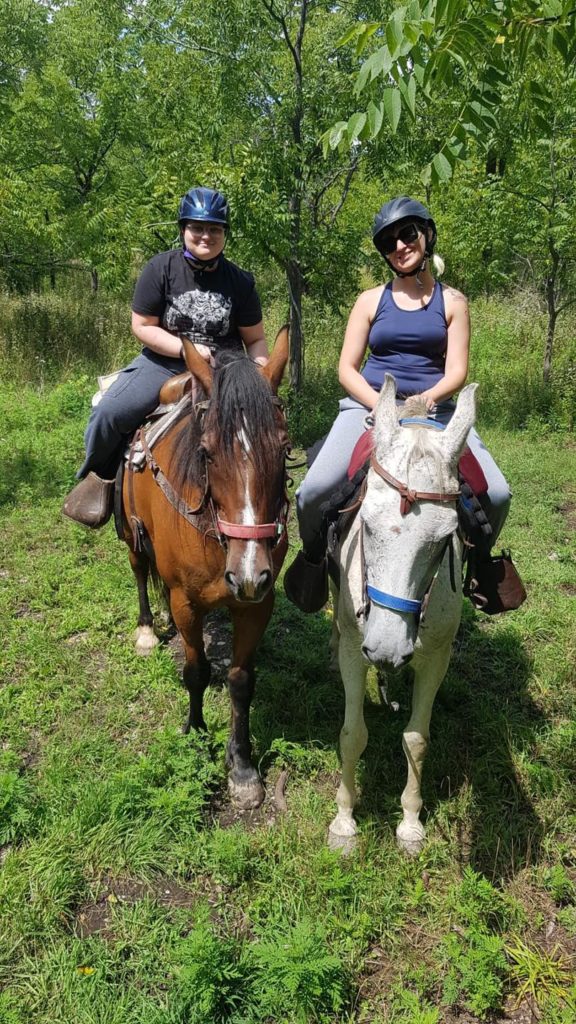
Bowslaugh’s young son, Levin, had recently been diagnosed with autism spectrum disorder. He was prone to meltdowns and violent outbursts, and was getting suspended from school.
It made going to work and forging a career difficult. Bowslaugh was often called away from her job to help her son. Plus, it was challenging being an outlet for other people’s hardships when she had no outlet of her own.
“It was really hard to go to work and hear about how hard everyone else’s life was, too,” she said. “People like to talk about autism but no one likes to talk about the violence that can happen. They’re not violent people; they’re overwhelmed, overstimulated and sometimes that comes out as violence. And schools don’t have enough resources to support them.”
She knows that now but at the time, she saw her inability to function at work, and sometimes at home, as a personal failure.
All of that was compounded when she pulled Levin out of school to teach him at home in 2017. Bowslaugh put her university studies on hold. Then she was diagnosed with cervical cancer in 2018.
“I felt like the worst parent. I wasn’t good at work. My house was a disaster,” Bowslaugh said. “In my own messed up brain, the only answer was to not be here myself.”
A new mission
Still, there was a glimmer of hope within her. In 2017, she dug out her high school poetry — the words of an anxious and lonely teen — and published them. For those reading it, Bowslaugh hoped it would be a much-needed message that they weren’t alone.
It gave her purpose. Writing a book had long been a goal of hers. It was now a box she could check and it filled her with enough confidence to do it again a year later when she co-authored A Mother’s Truth – Raising a Unique Child with Renata DiCarmine.
This time her muse would be Levin and his neurodiversities. One day he asked his mom why some people don’t like him. She told him it was OK to be different. Not everyone understood that and not everyone was being kind.
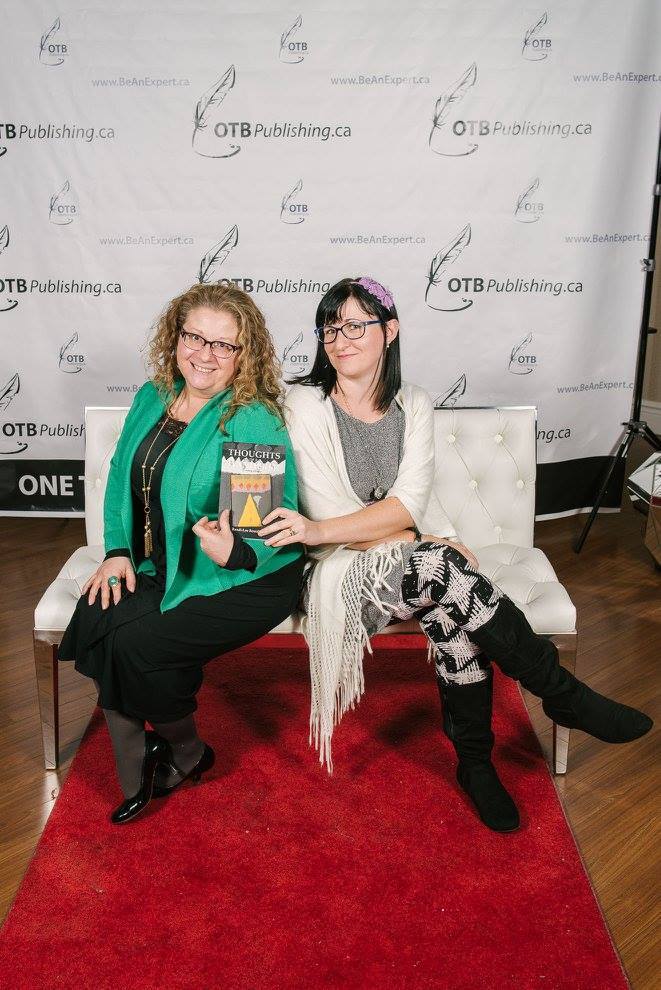
“And after that, it became my mission — bullying and treating people like this is not OK,” Bowslaugh said. “It took a long time to get to but it’s my great masterpiece. It’s telling people ‘It’s OK you’re different. It’s OK to go to therapy. It’s OK to take medication. It’s OK.’ ”
Since then, Bowslaugh has been writing non-stop. She published Embracing Me in 2021. It’s the story of coming to terms with her own depression, her thoughts of self-harm and suicide. It offers coping strategies to help readers explore their own mental health and “lovingly embrace themselves.”
She also wrote a series of children’s books, including some written for those with autism spectrum disorder, about making friends and how to use a bathroom.
In the process of writing came some further understanding about her own struggles. Bowslaugh was also diagnosed with autism in 2021.
“Now it makes so much sense. If I’d known that, if my mom had known that, we could have been working on skills I didn’t have. I thought I was different but not in a good way,” she said.
Writing has been cathartic, she added. It’s allowed her to be her authentic self, and set her sights on other goals that will keep her busy: Maybe a talk show in which she interviews celebrities about their own mental health challenges. Writing more books, for sure. And remembering to recognize and celebrate the successes along the way.
“It doesn’t sound that exciting and then someone says ‘Wow, you’ve done a lot,’ ” Bowslaugh said. “I say, ‘Thank you’ but I don’t stop to think about it because that’s my life. I’ve lived and come out the other side. I don’t know anything different.”
